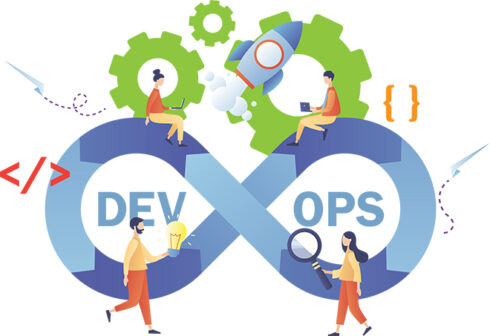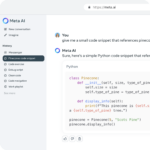
We asked these tool providers to share more information on how their solutions help organizations test applications in their DevOps environments. Their responses are below.
Gil Sever, co-founder and CEO of Applitools
Modern software development teams are rapidly delivering innovation to market through more frequent and shorter release cycles, but they struggle to fully test the customer experience due to increasing application complexity and an explosion of device/browser combinations
Applitools is helping over 400 of the world’s top digital brands accelerate the delivery of visually perfect digital experiences across all browsers, devices and screens through AI-powered test automation.
Trained on 1B+ images to deliver 99.9999% accuracy, Applitools’ Visual AI mimics the human eye and brain to deliver reliable full page validation that integrates into your existing test automation — with 50+ SDKs supporting open source frameworks (such as Selenium, Cypress, Playwright, Appium, etc.) and integrations with commercial test automation tools.
Applitools Eyes provides users with the ability to perform complete validation of the end user experience with a single line of code. Tests utilizing Applitools are 5.8x faster to create, 3.8x more stable and catch 45% more defects.
The Applitools Ultrafast Test Cloud combines Applitools Eyes with the Applitools Ultrafast Grid to deliver a modern approach to cross-browser / cross-device testing that executes tests 18.2x faster than legacy cloud execution grids or device farms.
Applitools’ Visual AI modernizes critical test automation use cases — functional and visual regression testing, web and mobile UI/UX testing, cross browser / cross device testing, localization testing, PDF testing, digital accessibility and legal/compliance testing — to transform the way businesses deliver innovation at the speed of DevOps without jeopardizing their brand.
You can see for yourself and sign up for a free Applitools account at https://www.applitools.com/signup.
RELATED CONTENT:
Testing in DevOps
A guide to testing tools for use in DevOps environments
Jeff Williams, co-founder and CTO of Contrast Security
We provide a platform of products that are designed to help companies become good at building secure code, doing it fast and reliably. And we do it by giving instant feedback to the folks that need it through the tools they’re already using.
Unlike scanners that plow through your whole application portfolio, Contrast runs in the background, a lot like an APM tool. It gathers a ton of telemetry across all your applications in parallel – APIs, cloud-native, and serverless functions – brings that all together, and gives you dashboards to show you exactly what you need.
Most developers don’t really want another dashboard, what they’d really like is their security results, right in JIRA or they’d like to fail a build or get Slack alerts or in their IDE. There’s a million ways to consume the data that we generate, but I think the most important thing is that we have super accurate data based on observing the actual application run. We’re not guessing about vulnerabilities.
We offer Contrast Assess, which runs within the application and uses instrumentation to find vulnerabilities in your custom code and in your libraries.
We also have Contrast OSS, which finds the known vulnerabilities in all your open source so that you’re not using libraries that have known vulnerabilities.
Then we added Contrast Protect. It’s the same instrumentation approach, but now we applied it in production so that it’s super high performance and it prevents vulnerabilities from being exploited.
We also added Contrast Scan, which is a static analysis tool with a new algorithm called demand-driven static analysis, making it much more efficient at finding vulnerabilities and you can run it in your pipeline. As a result of the tremendous uptake in serverless, we launched our first security for serverless offering for AWS Lambda.
——————–
Gareth Smith, general manager of Keysight Technologies
Using artificial intelligence (AI), machine learning (ML) and real user data, Keysight’s Eggplant solution automates test creation and execution. The Eggplant Digital Automation Intelligence (DAI) platform tests and monitors user interface (UI) performance to improve software development, enhance quality, and elevate the customer experience at DevOps speed.
Instead of testing the code, the DAI platform focuses on the end-to-end customer experience. It provides teams with unparalleled intelligence on where problems lie, significantly reducing the time to resolve these issues. This means organizations can meet customer experience demands and continuously deliver innovation faster while devising strategies to expand DevOps.
Customers across aerospace and defense, automotive, education, financial services, healthcare, retail, and telecoms rely on the intelligent automation. The DAI platform automates over 95% of activities, including test-case design, test execution, and results analysis. This allows teams to rapidly accelerate testing and integrate with DevOps at speed.
As environments grow more complex and interconnected and with workers distributed, organizations need continuous intelligent test automation that is easy to integrate and scale. Keysight Technologies’ Eggplant automation helps businesses rapidly create products that delight users, test the entire customer experience across any technology, and predict the quantified impact of new product versions on the user before release.
By partnering with Keysight Technologies, enterprises can deliver better software at a faster pace that delights users.
——————–
Chris Haggan, Product Management Lead, HCL OneTest
A product that is rushed to market with little time for quality assurance can massively damage the reputation of even well-established organizations. Adopting new technologies, and the fast-paced work environment driven by users who expect more from the applications they work with, will not change. It is time to find testing solutions that evolve with changing landscapes.
HCL OneTest supports UI, performance and API testing along with synthetic data generation and service virtualization to help meet the challenge of testing highly-integrated and complex applications. It features a script-less, wizard-driven, test authoring environment, and supports more than 100 technologies and protocols. HCL OneTest helps with the connections and dependencies between services and components to plan integration test strategies, and generates coverage reports to help identify which processes and services require further testing. Together, these HCL OneTest components help automate and run tests earlier and more frequently to discover errors sooner when they are less costly to fix.
To achieve a successful DevOps strategy, software testing teams must automate regression testing to reduce the risk of deploying poor quality software into production. Effective test automation includes application programming interface (API) testing, user interface testing, and overall system testing. Employing service virtualization in conjunction with test automation allows these tests to be executed earlier, while covering a wider range of scenarios. HCL OneTest has all these features and more, and enables organizations to implement continuous testing within their DevOps strategy and bridge the gap between speed and complete testing.
——————–
Mabl – Dan Belcher, co-founder of Mabl
We’ve seen a profound shift in how organizations view software testing and quality assurance. Historically, QA received less focus and investment than other functions, but that is changing: CTOs and engineering leaders are looking to quality engineering as a key enabler of DevOps and digital transformation, which require a broader mandate to ensure that quality is embedded deeply throughout the software delivery pipeline. Mabl is the only test automation platform designed to fulfill this new mandate in the enterprise.
Mabl features a low-code UI and framework that allows everyone, regardless of coding experience, to create automated tests with 80% less effort, spanning web UIs, APIs, and mobile browsers. Using artificial intelligence, mabl reduces test maintenance with autohealing, which detects and adapts to changes automatically. With functional test creation and maintenance streamlined, QE can spend time on broader quality attributes – including performance, accessibility, and UX – while keeping pace with DevOps.
Mabl also integrates with popular tools such as Microsoft Teams, Slack, and Jira, so that users can incorporate testing information seamlessly into their workflows and benefit from rich diagnostic data from mabl. Rich reporting supports continuous improvement and improved collaboration across the software development pipeline by addressing one of the biggest inhibitors to DevOps: process changes. 1-in-3 software development professionals cite the slow pace of change as their biggest DevOps challenge, making easy-to-adopt tools essential for success. Using mabl, quality teams are able to expand test coverage, support faster defect resolution, and ultimately enable digital transformation and DevOps across their organization.
——————–
Marcus Merrell, senior director of Technology Strategy at Sauce Labs
Continuous testing is a key enabler of digital confidence — the knowledge that you’re delivering the best possible user experience to your customers. Digitally confident organizations know that their web and mobile applications look, function and perform exactly as intended, every single time they’re used.
Sauce Labs gives companies the confidence to deliver a flawless digital brand experience to their customers. The Sauce Labs Continuous Testing Cloud is designed to quickly identify code errors, accelerating the ability to release and update web and mobile applications that look, function and perform exactly as they should on every browser, operating system and device, every single time. Sauce Labs dramatically reduces the time and effort required to discover and fix errors using automated or manual tests, multiple frameworks, leading operating systems, and on real or virtual devices for faster, cleaner releases and more successful, trusted customer experiences.






